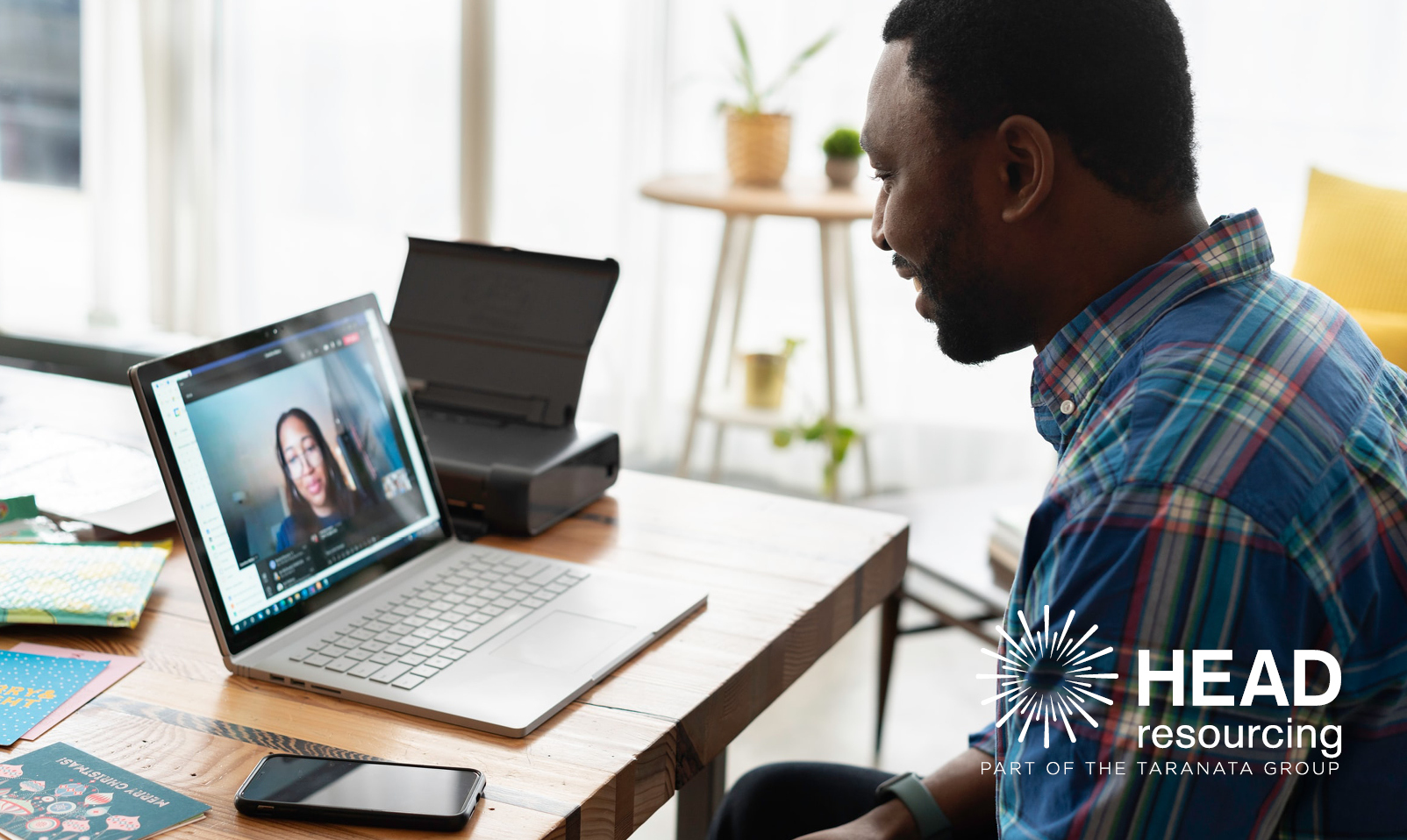Now we come to the final stage of the process, however there’s more prep to do so you can be ready for the correct method, and the correct format of interview.
Interview format
You will need to prepare specifically for different interview formats. Interviews are normally conducted via telephone or face-to-face, although in the last 15 months most interviews have taken place via an online platform such as Teams or Zoom.
Online Interviews
Currently, online interviews are the most common interview format. These take place via an online platform such as Zoom or Teams. What you need to bear in mind prior to an online interview is essentially a mix of what you need to be mindful of before a telephone and a face-to-face interview.
Firstly, you must make sure you are in a quiet room with a good internet connection. Try to avoid distraction from children, dogs, or loud noises in the background. Ensure your technology works – this includes checking your camera and microphone settings, and, if possible, try to familiarise yourself with the chosen platform.
It is important to have a professional background. Don’t just sit by your bed with piles of dirty laundry – if you aren’t able to sit in a professional-looking environment, you can either pick one from Zoom or Teams or simply blur your background. Don’t pick a funny one either – an interview isn’t the place to have a beach background! Similarly, make sure your username is professional and not your Quiz Team name from your Zoom quiz last weekend!
During the interview, try to look at the camera and the interviewer. It is easy to become distracted when you’re sitting at your laptop, so focusing on the task at hand is important.
Finally, dress as you would for a face-to-face interview. Ask about the dress code, and follow it – not just on top!
Telephone interview
To prepare for your telephone interview, you will firstly need to make sure you have access to a quiet room where you have good phone signal. Don’t decide to have it while you are in a busy café or a bar, or out for a walk.
You should have your CV, the job description and relevant research you have done printed out and at hand to reference throughout the interview. You should also take notes – telephone interviews are often first stage interviews, and a face-to-face or online interview may follow, so make sure you note down important information from this stage.
Face-to-face
Face-to-face interviews were the most common interview format before Covid-19. These would usually take place at the organisation’s offices, and often consist of a panel of interviewers.
To prepare for a face-to-face interview, you will have to make sure you’ve got your basics covered. Find out how to get to the offices, and make sure you’ve got the correct office building and entrance too. You’ll also need to know who to ask for at reception.
Make sure you’re aware of the dress code. Will you be required to wear a full suit? Is the environment smart casual or fully dress-down?
You should also make sure you give yourself plenty of time. I would recommend arriving approximately 10 minutes before your scheduled interview, to allow reception to notify the interviewers and to give you a chance to relax and gather your thoughts.
Finally, switch off your mobile! There is no need to have it on during an interview, and it will only serve as a distraction.
During the interview
It can be tempting to simply run through all of your knowledge and experience during an interview, to ensure nothing is missed out. You need to make sure you take your time and listen to the question being asked, and make sure you answer that question specifically. Think about your answers – there is no rush, and do take the time to take a deep breath and gather your thoughts and ideas before answering.
As tempting as it may be, do not speak badly of previous employers or workplaces.
It is important to prepare questions – you are likely to have some questions on the back of the interview itself, but it’s worth having a couple of pre-prepared ones to ask as well. Even if you feel your questions have been answered during the interview, you can ask to re-affirm a point and this will highlight you are interested in the role.
Finally, it’s always good to ask if the interviewers have any additional questions for you. This will allow you to re-iterate points or go into more detail where appropriate.
Final thoughts
The world of CV writing and preparing for interviews can seem particularly overwhelming at times. It is important to take your time throughout the process:
When writing your CV, take your time to think about what you want to achieve
When tailoring your CV and writing cover letters, take your time to think about what the organisation is looking to achieve
When preparing for an interview, take your time to research the organisation, the interviewers, and preparing for the correct format
When attending an interview, take your time to listen to the questions being asked and take your time when answering them
You can only control what you can control, and if you approach the job search with that in mind, it will hopefully make it seem like a more manageable process.
Let's talk
If you have any thoughts and want to get in touch about anything I have covered in this series, you can find me over here.
The information contained in this article does not constitute business advice and should not be acted on as such. This content is based on our understanding in June 2021. Head Resourcing are not liable for the information contained on any third-party websites linked to this article.
